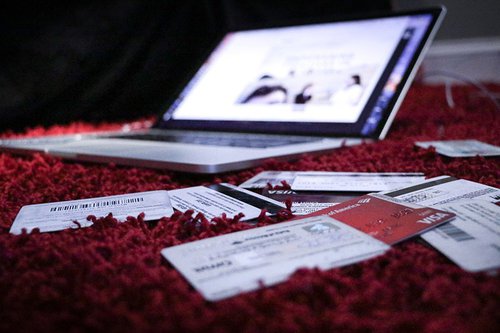Money Resolutions - Get your finances sorted in the New Year
By MAS Team
By MAS Team
Your New Year’s resolutions should include setting money goals - especially if you’re under 40.
‘Tis the season to make plenty of well-intentioned New Year’s resolutions. Some we’ll keep, some we’ll let slide after a couple of weeks.
But there aren’t many resolutions quite as important as getting your finances in order. Whether you’re a student thinking about loans and budgeting, you’ve landed your first office job and are finally earning a salary, or you’re saving to buy your first home - now is the time to set some money goals.
It can be hard working out where to start. Your priorities change over time, and we all want different things out of life. But to help you work out what’s important to you, we’ve put together some tips for Millennials and Gen Zers to get you thinking.
For those born between 1997 and 2015, there are some tough financial challenges ahead. Many of you will still be studying, or might have just left school or uni and are looking for your first job. Not only are there student loans to pay off, but basic living expenses can be a challenge on a limited budget.
The best advice we can give at this stage is to get into good money habits. Here are some of our top tips.
 Don’t be tempted:
Don’t be tempted:
When you turn 18, it can be tempting to rush off and sign for your first credit card. The shopping possibilities feel endless. But it’s important to resist this temptation as it could result in some hefty debts that follow you for the next 10 years or more. The same goes for other forms of casual debt like hire purchases and buy now, pay later deals. Read more about credit cards here.
Saving routine:
When you get your first job and you start having cash coming into your bank account regularly, it can be tempting to go on a shopping bender. You should definitely treat yourself once in a while but it’s a good idea to treat your savings account as just another bill you have to pay before you start spending up. You’ll be surprised how quickly your account grows even when you’re saving only small amounts each fortnight. Just as important, though, is getting into the habit of putting something aside each pay cycle.
Get it covered:
If you are flatting while you’re studying or working, you should think about what insurance you might need to replace or repair your belongings if they get damaged or stolen. Contents insurance and car insurance might be worth considering.
If you’re a Millennial - born between 1981 and 1996 - you’re likely to be well into your career now and starting to earn a higher salary.
This gives you more spending options but there’s also the risk of ‘lifestyle creep’, where your spending increases to match your salary so you never truly get ahead. Avoid this by updating your monthly budget and make sure you’re saving sensibly.
Student loan:
While you’re living in New Zealand, student loan debts don’t accrue interest so there’s no major advantage to paying it off fast. That said, how great would it be to boost your take-home-pay each fortnight by paying it off? Treat your loan like any other debt and pay as much of it off each week as you can manage, not just the bare minimum.
Save that salary:
KiwiSaver is great but that doesn’t mean you shouldn’t be saving in other ways too. Setting up an emergency savings account and treating it like just another bill to pay will help cover you for those unexpected expenses.
 Home sweet home:
Home sweet home:
Most Millennials, particularly at the younger end of the generation, will be working towards (or at least thinking about) making their big first home purchase. So, be sure to maximise your KiwiSaver entitlements by contributing at least 3% of your salary. Your employer will match your contribution at 3%, and the 3% minimum ensures you get the maximum Government contribution of $520 per year to your account. After being in KiwiSaver for three years you can withdraw almost all of your balance for your home deposit, so getting into the scheme as early as possible and maximising your contributions now will help boost the amount you have as a deposit when it comes time to make your first home withdrawal.
Protect yourself and your family:
As you build up more assets and take on more financial responsibilities, the greater your insurance needs. Along with general insurance (house, car, contents), you might also need to consider income protection insurance. Your income might be intangible but it’s as much of an asset as your house or car and if you have an accident and can’t work for an extended period, it’s an asset you’re going to miss. Income protection becomes particularly important if you have major financial obligations like a mortgage or have dependents who depend on your income.

Here are some important things you should know about getting rid of that lurking student loan debt – fast.

At MAS, we encourage students to think about building their KiwiSaver balances early. Retirement may seem like a very distant future, but there are lots of reasons why saving early on will pay off in the long run.

Securing your financial future can include consideration of various investment options including KiwiSaver, term deposits, bonds, and shares.